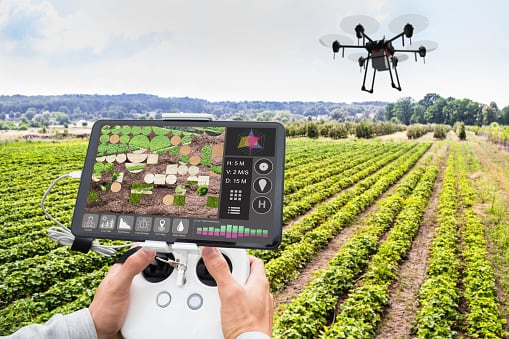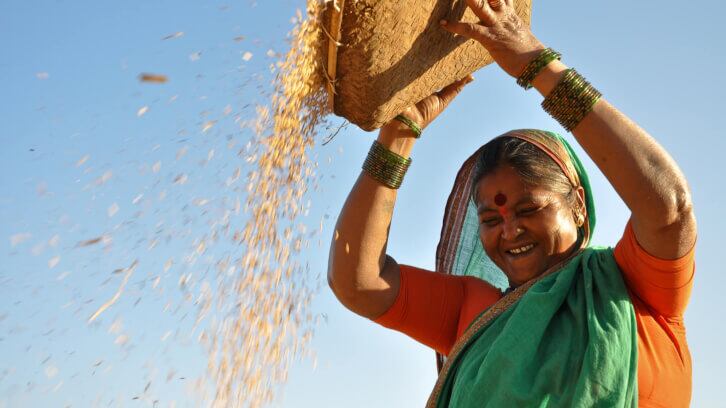The firm’s latest Creating Shared Value and Sustainability Report 2022 highlighted some successes in its efforts to address climate change, water stewardship and plastic waste reduction.
The multi-national F&B conglomerate claims to have achieved a reduction in greenhouse gas emissions (particularly Scope 1 and 2 emissions) and says it is committed to further reductions and net-zero targets. It has also emphasised its efforts to advance regenerative food systems and support farmers in adopting sustainable practices, at the same time reporting active participation in various partnerships and initiatives focused on water resource management and sanitation.
One of the key successes the report mentions is Nestlé’s greenhouse gas emissions reduction of 6.4 million tonnes compared to a business-as-usual (BAU) scenario — the first time its emissions fell below its 2018 baseline despite company growth. However, since most of the reduction was seen in Scope 1 and 2 emissions, the company has stated its commitment to further reducing emissions and recognising the importance of addressing Scope 3 emissions — the greater part of its emissions.
In order to advance regenerative food systems at scale, Nestlé is focused on fighting deforestation, restoring degraded forests and implementing a Forest Positive strategy. It is also supporting farmers in transitioning to regenerative agriculture practices, which aim to help store carbon in soil, improve soil health, and enhance bio-diversity and water security.
To further its sustainability efforts, Nestlé also runs a Landscape Enterprise Networks (LENs) programme, a methodology for buying and selling nature-based solutions that has seen success in the UK and Europe. By collaborating with various stakeholders and businesses, the company is achieving positive impacts on water quality and biodiversity while addressing landscape challenges.
At the same time, in line with its commitment to improving water quality, Nestlé is actively involved in several water partnerships and initiatives to address watershed challenges and promote sustainable water management. The company has implemented projects to restore wetlands and improve water quality in various regions, including Africa and the Middle East.
Improvement and innovation potential
Despite Nestlé’s aforementioned efforts and progress in lowering its carbon footprint and driving sustainability, the report also acknowledges several areas in which the company must strive for improvement. One such area is plastic waste reduction, as the global plastic waste problem has had a significant impact on marine life and the environment.
While Nestlé has committed to industry-led solutions and signed up for the Consumer Goods Forum’s Plastic Waste Coalition of Action, it must still implement Golden Design Rules for plastic packaging across its portfolio by 2025. New solutions are necessary to minimise waste, streamline packaging designs and increase recycling rates.
The company also has some way to go before reaching its goal of having 100% of its key ingredients produced sustainably by 2030. It has developed the Produced Sustainably Framework, which includes traceability, human rights and environmental due diligence, and compliance with the Responsible Sourcing Standard. Improving sourcing practices and ensuring sustainability throughout the supply chain will require innovation and collaboration with suppliers.
Broader challenges
Beyond the industry-led solutions Nestlé has initiated or involved itself with, the climate crisis and an unsustainable food system are responsible for a significant portion of global emissions and therefore, pose a wider challenge. Achieving sustainability in the food industry requires addressing these challenges while nourishing a growing population equitably and sustainably.
Water resource management is another area that requires constant attention, especially amid the increasing global prevalence of droughts. Nestlé aims to reduce water use in their factories and improve water stewardship but water stress in certain regions remains a challenge that requires greater collaborative efforts.
Additionally, deforestation and land rights remain a challenge to sustainable sourcing, making Nestlé's commitment to deforestation-free supply chains and addressing land rights issues essential. The company must continue to advocate for transparency and collective action to combat deforestation and promote sustainable land use practices.
Overall, Nestlé's sustainability reporting demonstrates its commitment to addressing environmental and social challenges but continued efforts, innovation and collaboration will be required to achieve its ambitious sustainability goals.
Reporting methodology: Pros and cons
Nestlé engages Ernst & Young (EY) to provide independent assurance of 13 selected Environmental, Social and Governance (ESG) key performance indicators (KPIs) that are of high strategic importance to their business. This assurance engagement is performed in accordance with the International Standard on Assurance Engagements (ISAE) 3000 to provide limited assurance. Nestlé seeks to strengthen stakeholder confidence in the data they report and anticipates increased regulation of sustainability reporting and assurance.
The 13 ESG KPIs are as follows:
Environmental
- Greenhouse Gas (GHG) emissions reductions and removals
- GHG emissions (Scope 1)
- GHG emissions (Scope 2)
- GHG emissions (Scope 3)
- Water use reduction in factories
- Percentage of sustainably produced key ingredients
- Percentage of deforestation-free primary supply chain
- Percentage of plastic packaging designed for recycling
- Percentage of virgin plastic reduction
- Percentage of ingredients sourced through regenerative agriculture
Social
- Number of servings of affordable nutrition with micronutrient fortification (MNF)
- Number of young people around the world who access economic opportunities
- Women in the top 200+ senior executive positions
The selected ESG KPIs reflect the most material issues to Nestlé's business and stakeholders, including major corporate commitments and ESG performance measures that drive executive compensation. The design of these KPIs takes into account voluntary reporting frameworks and standards, such as the Global Reporting Initiative, Sustainability Accounting Standards Board and World Economic Forum Stakeholder Capitalism Metrics.
Nestlé reports the performance against the Selected ESG KPIs in its Creating Shared Value and Sustainability Report 2022, as well as its 2022 annual review. The Scope includes companies whose financial performance is consolidated in Nestlé S.A. consolidated financial statements under International Financial Reporting Standards (IFRS), excluding associates and joint ventures.
Newly acquired entities during 2022 were not considered for the Selected ESG KPIs, and acquisitions during 2022 will be included in ESG reporting from 1 January 2024. Data and performance of divested entities during 2022 were excluded from the Selected ESG KPIs and data collection involves extracting data from Nestlé's own systems or third-party systems with authorisation. Data not available in the systems is construed in good faith according to best practice and industry standards.
By engaging a reputable external firm to provide independent assurance, Nestlé enhances the credibility of its reported sustainability data. Another advantage of its reporting methodology is that it prioritises ESG KPIs that are most material to its business and stakeholders, ensuring a focus on significant sustainability issues.
At the same time, Nestlé's use of voluntary reporting frameworks and standards demonstrates its commitment to aligning its reporting with recognised industry practices. It also employs good faith and industry standards in data collection, ensuring accuracy and reliability.
On the other hand, limited assurance might not be sufficient to fully verify the accuracy of reported data, potentially leaving room for uncertainty. Furthermore, Nestlé's exclusion of newly acquired entities from the reporting until 2024 may lead to gaps in the assessment of its overall sustainability performance.
Additionally, the exclusion of certain entities (e.g., divested entities) may not provide a comprehensive view of Nestlé's sustainability impact across its entire value chain, and annual reviews might lead to fluctuations in reported data, making it challenging to establish long-term trends.
Outside opinions
Nestlé's sustainability efforts and reports have received both compliments and criticisms from various non-governmental organisations (NGOs) and campaign groups. The CDP (formerly known as the Carbon Disclosure Project), for instance, has recognised the company for its efforts to reduce greenhouse gas emissions and address climate change.
The Forest Trust (TFT; now known as Earthworm Foundation) has praised Nestlé for its partnership with TFT in monitoring and addressing deforestation in its supply chains, particularly for palm oil, soy and paper products. Meanwhile, the Access to Nutrition Foundation acknowledged Nestlé's efforts to improve the nutritional content of its products and make healthier choices available to consumers.
Conversely, several prominent NGOs and campaign groups have criticised Nestlé for actions they consider counter-productive to sustainability efforts. Greenpeace, for example, has denounced Nestlé's sourcing of palm oil from suppliers linked to deforestation and habitat destruction, which have had negative impacts on endangered species like orangutans and tigers.
Oxfam International has raised concerns about the labour practices within Nestlé's supply chain, accusing the company and other major food companies of not adequately addressing issues such as poverty, wages, unfair labour conditions, and gender inequality among small-scale farmers and workers in their supply chains.
Baby Milk Action has been critical of Nestlé's marketing practices for infant formula and other baby food products, alleging violations of the WHO / UNICEF International Code of Marketing of Breast-milk Substitutes. Additionally, Changing Markets Foundation has criticised Nestlé's plastic pollution and waste management practices, urging the company to take stronger actions to reduce its plastic footprint.




